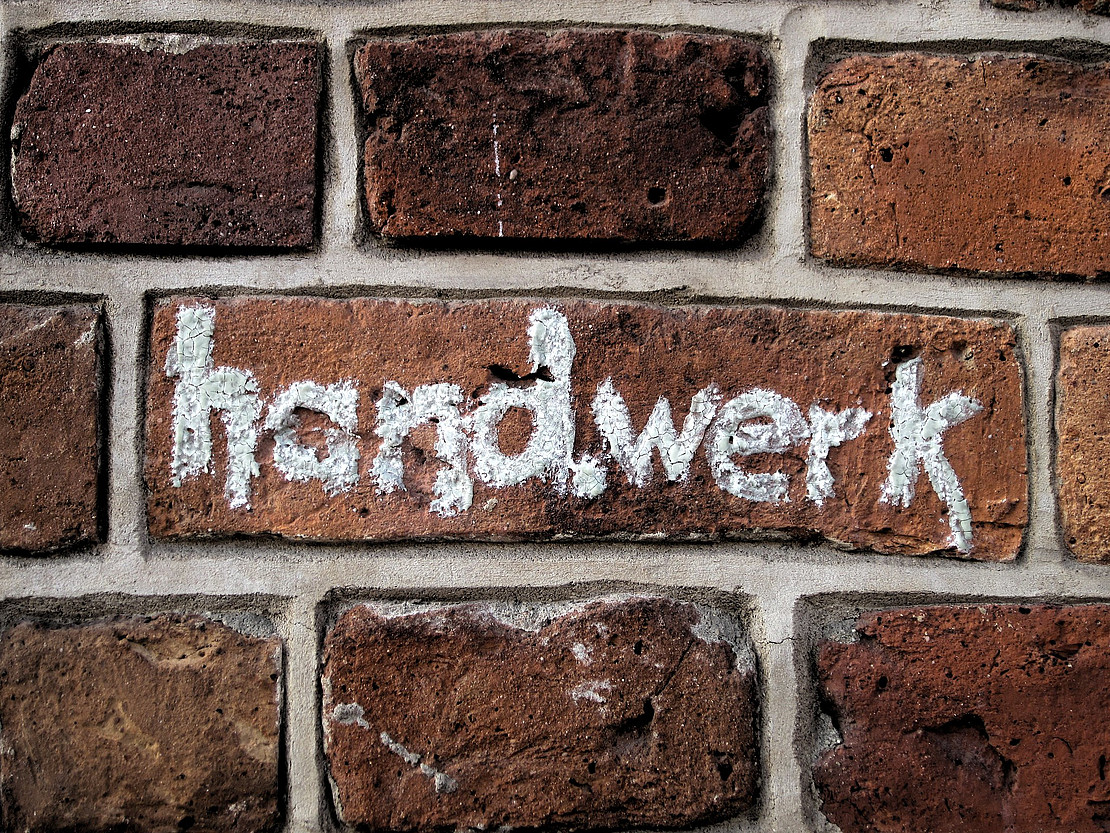This page contains automatically translated content.
Help for the digitization of the skilled trades
 Image: Oliver Wunder.
Image: Oliver Wunder.Scientists led by Prof. Dr. Patrick Spieth developed future scenarios as part of the "FachWerk" project and used them to derive the impact of technological megatrends on the skilled trades. A platform developed by the Human-Machine Systems Engineering department headed by Prof. Dr.-Ing. Ludger Schmidt together with the practical partners in the project provides assistance for the introduction of digital technologies, such as in document management in business processes or the use of drones, while taking data protection into account. The project also provides new training formats for craftsmen and women, for example using virtual or augmented reality, which were tested in the project. The platform is made available to skilled crafts businesses in northern Hesse via the Berufsförderungswerk des Handwerks.
"Digital technologies already offer skilled crafts companies a wide range of possibilities in work, production and business processes. Our FachWerk project pursued the goal of qualifying skilled workers for the use of digital technologies and digitally supporting manual, experience-based activities in the skilled trades that cannot be automated," explained Spieth, who heads the Department of Technology and Innovation Management and Entrepreneurship at the University of Kassel and co-ordinated the project.
"The economy is in the midst of a huge transformation," Spieth said. "But many businesses, especially small businesses, still have some catching up to do. They often don't see the opportunities that digitization offers them. With FachWerk, we are also counteracting a digital divide in the skilled trades, so that smaller businesses, as well as older or unemployed skilled tradespeople, are not left behind."
The project was funded by the German Federal Ministry of Education and Research with more than 1.3 million euros. In addition to the Department of Technology and Innovation Management and Entrepreneurship, the project also involved the Department of Human-Machine Systems Engineering at the University of Kassel, the Institute for Vocational Education and Adult Education at Leibniz University in Hanover, the Berufsförderungswerk des Handwerks gGmbH in Korbach, the companies Gringel Bau + Plan GmbH in Schwalmstadt and Hübschmann Aufzüge GmbH & Co KG in Korbach, the Korbach Employment Agency and the Kassel Chamber of Skilled Crafts.
Vocational training center for the skilled trades: www.bfh-korbach.de